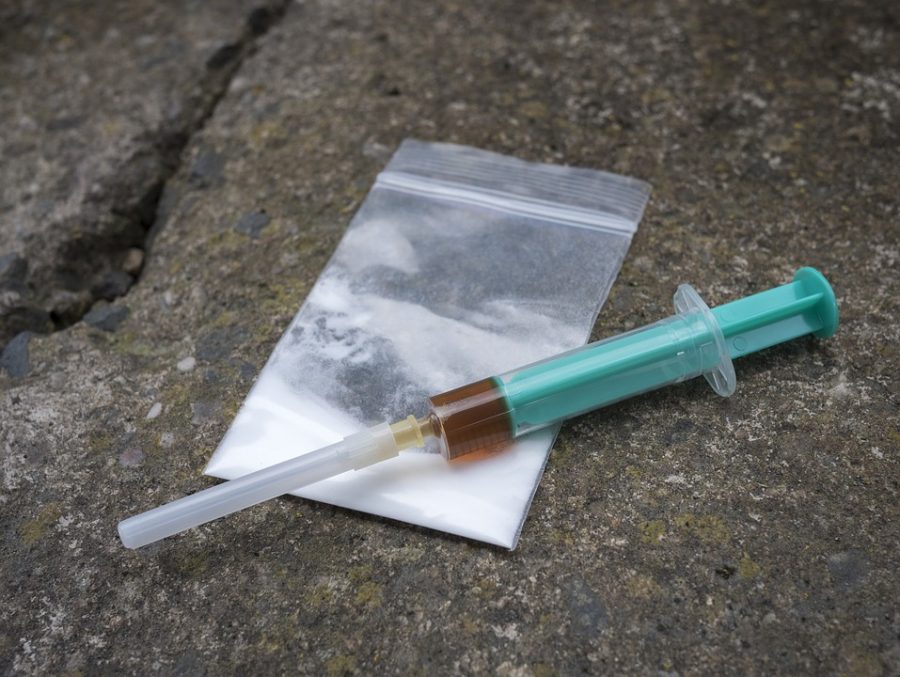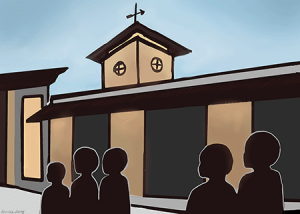The Case for the Decriminalization of Hard Drugs
April 3, 2019
In the city of Española, 80 miles from Albuquerque, a patchwork of cottonwood trees stretches beatifically over the Rio Grande below. For all its charming scenery, however, Española hides an ugly secret: the tiny New Mexico town is a little-known epicenter of the United States’ burgeoning drug epidemic, with close to 50 people dying of overdoses each year in the town of only 10,000 (Krasnow, 2017). Fueled by Mexican cartels that use Española as their inroad for heroin trafficking in the United States, Española is a symbol of hopelessness—so much so that when the Delancey Street Foundation, a wildly successful rehabilitation clinic with locations in major cities, sought to put out new roots, they chose Española as their destination.
Española is just one of thousands of cities struggling with drug-related crises. The Rust Belt, once the base of America’s thriving industrial sector, is now an opioid hotspot, with viral overdose videos and terrifying statistics highlighting the rampant abuse of heroin and painkillers. The problem isn’t restricted to the United States, either; since 2015, the number of first-time heroin users in Europe has risen by 26 percent (EMCDDA, 2017, pp. 54-57), and synthetic drug use has reached an all-time high in China (Sun et al, 2014). The UN estimates that 29.5 million people worldwide suffer from drug use disorders that leave them incapacitated, intensify mental illness, and lead to early death (UNODC, 2017). Addiction also comprises a severe drain on social resources, as violent crime typically corresponds to drug use, and government programs to jail or rehabilitate addicts result in high taxes and employ outdated detox techniques with low success rates. Stigmas against drug addicts—who are characterized as lazy at best, and worthless junkies at worst—exacerbate the trend of disregard for drug-related aid, leaving addicts unable to find or afford help even when they recognize the negative impact of their drug abuse.
Within individual countries, illegalization has been the norm to try and prevent drug use. In theory, criminalization cracks down on drug possession and dealing, making it harder to obtain drugs and easier to prevent addiction. In reality, however, the prohibition of drugs seems to have only increased their allure, especially among vulnerable teens who see drugs as a symbol of counterculture and rebellion. Drug abuse is an addiction with both mental and physical triggers; it cannot be treated as a legal issue because it is not one. Some countries, however, have been able to combat drug use in a different way. In 2001, Portugal, mired deep in a heroin epidemic that saw one in ten citizens fall into addiction, decriminalized all drug possession. Instead of facing arrest, those found with drugs are now given access to information about treatment programs and safe injection procedures. Although eyed warily by conservatives, decriminalization proved effective within mere years: drug use plummeted, and with it deaths from overdose, HIV infections, and violent crime (Ferreira, 2017). In addition, the stigma that previously surrounded drug users shifted drastically, with the Portuguese term for “junkie” replaced with one meaning “person with an addiction disorder,” language that better reflects the growing scientific understanding that drug addiction is a disease rather than a personal problem derived from an inability to exert self-control (Leshner, 1997). The newfound lack of shame associated with drug use has made it easier for addicts to enter treatment and self-detox with methadone, which is publicly available.
Although the Portuguese model has been lauded across the globe, few other countries have taken steps to follow in their footsteps. It is becoming increasingly clear that the current model to deal with drug addicts—which often involves painful jail detoxes for those arrested and public humiliation of those who are not—is ineffective. Addiction will continue to plague society until we can embrace both scientific and social evidence that drug abuse is best alleviated by offering support and education to those who suffer from it.







